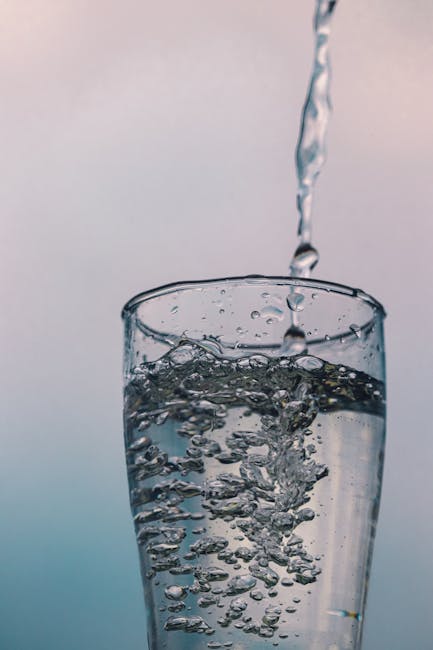Cold water immersion, a practice that involves submerging oneself in chilly water, has been gaining popularity for its numerous physical health benefits. But did you know it can also significantly improve mental health? This article delves into the science behind the mental health benefits of cold water immersion and why it might be worth adding to your wellness routine.
Key Takeaways
- Cold water immersion can reduce symptoms of anxiety and depression.
- It enhances mood and mental clarity by releasing endorphins and reducing inflammation.
- Physical responses to cold water immersion, like stimulation of the vagus nerve, can reduce stress and increase resilience.
- The practice promotes mindfulness and boosts self-esteem.
- Participating in cold water immersion as a community can enhance mental well-being.
Introduction to Cold Water Immersion and Mental Health
Overview of Cold Water Immersion
Cold water immersion is a practice that involves submerging the body in cold water, typically in a natural body of water like a lake or ocean. It’s a form of hydrotherapy that has been used for centuries in various cultures for its health benefits.
Connection between Cold Water Immersion and Mental Health Benefits
Recent studies have shown that cold water immersion can have profound effects on mental health. It can help manage symptoms of anxiety and depression, enhance mood and mental clarity, and even foster a sense of community and support.

Psychological Effects of Cold Water Immersion
Reduction in Anxiety and Depression Symptoms
Natural Management of Anxiety and Depression
Cold water immersion can act as a natural management strategy for anxiety and depression. The intense physical sensation of cold water can distract the mind from negative thoughts and emotions, providing temporary relief from symptoms.
Influence on Neurotransmitter Release
Cold water immersion can also influence the release of neurotransmitters in the brain, which can help regulate mood and reduce symptoms of anxiety and depression.
Enhancement of Mood and Mental Clarity
Release of Endorphins
When the body is exposed to cold water, it responds by releasing endorphins, the body’s natural “feel-good” hormones. This can result in a mood boost and increased mental clarity.
Anti-Inflammatory Properties and Mood Disorders
Cold water immersion has anti-inflammatory properties, which can help manage mood disorders. Inflammation in the brain has been linked to depression, so reducing inflammation can help alleviate symptoms.

Physical Responses and Their Impact on Mental Health
Stimulation of the Vagus Nerve
Role in Anxiety Levels
The vagus nerve, which plays a key role in the body’s rest and digest system, is stimulated during cold water immersion. This can help reduce anxiety levels and promote a sense of calm.
Reduction of Stress Responses
Stimulation of the vagus nerve also helps reduce the body’s stress responses, making it easier to manage stress and anxiety.
Increase in Stress Resilience
Managing Stress More Effectively
Regular exposure to the stress of cold water can help the body become more resilient to other forms of stress, making it easier to manage stress in daily life.
Reduction in the Frequency of Panic Attacks
By helping the body become more resilient to stress, cold water immersion can also reduce the frequency of panic attacks in individuals with panic disorder.

Psychological Benefits of the Cold Water Immersion Experience
Mindfulness and Present-Moment Awareness
Sensory Input as a Form of Mindfulness
The intense sensory input from cold water immersion can act as a form of mindfulness, helping individuals stay present and focused on the here and now.
Distraction from Anxiety and Stress
The physical sensation of cold water can also provide a distraction from anxiety and stress, helping to break the cycle of negative thoughts and emotions.
Boost in Self-Esteem and Sense of Accomplishment
Challenge and Endurance
Cold water immersion is a challenging experience that requires endurance. Overcoming this challenge can boost self-esteem and provide a sense of accomplishment.
Contribution to Improved Mental Health
This boost in self-esteem and sense of accomplishment can contribute to improved mental health overall.

Community and Support Through Cold Water Therapy
Fostering a Sense of Community
Shared Experiences in Cold Water Immersion
Participating in cold water immersion as a group can foster a sense of community. The shared experience of enduring the cold water together can create strong bonds between individuals.
Motivation and Encouragement from Others
Being part of a community can also provide motivation and encouragement to continue with the practice, even when it’s challenging.
Enhancing Mental Well-Being
Support Networks
Having a support network can greatly enhance mental well-being. Participating in cold water immersion as a community can provide this support network.
Collective Mental Health Benefits
The collective mental health benefits of cold water immersion can contribute to a healthier, happier community overall.
Cold water immersion is more than just a physical challenge. It’s a powerful tool for improving mental health, fostering community, and promoting overall well-being. So why not give it a try? You might be surprised by the benefits you experience. For more information on the connection between physical and mental health, check out our article on holistic wellness. If you’re interested in other natural strategies for managing stress and anxiety, our articles on deep relaxation techniques and mindfulness-based therapy might be of interest. And don’t forget to stay hydrated during your cold water immersion sessions! Our article on the benefits of drinking enough water has all the information you need.
(source: wellin5.ca, discovermonk.com, openaccessgovernment.org)
Dive Into Wellness: FAQ on the Chilling Wonders of Cold Water Immersion for Mental Health
What is cold water immersion?
Cold water immersion involves submerging the body in cold water, typically around 15°C (59°F) or lower. This practice, often used by athletes for recovery, has gained popularity for its mental health benefits. It’s a form of hydrotherapy that can range from cold showers to ice baths or swimming in natural cold water bodies.
How does cold water immersion benefit mental health?
Exposure to cold water triggers the body’s stress response, leading to an increase in endorphins, the body’s natural painkillers and mood elevators. Regular cold water immersion has been associated with reduced symptoms of depression and anxiety, improved stress management, and enhanced feelings of well-being and mental clarity.
Can cold water immersion help with anxiety?
Yes, cold water immersion can help with anxiety. The practice teaches the body to adapt to stress, which can translate to better anxiety management over time. The initial shock of cold water also helps focus the mind on the present moment, acting as a form of mindfulness that can reduce feelings of anxiety.
Is there scientific evidence supporting the mental health benefits of cold water immersion?
There is a growing body of scientific evidence supporting the mental health benefits of cold water immersion. Studies have shown that it can lower stress hormones, increase endorphins, and activate parts of the brain responsible for mood regulation. However, research is ongoing, and more studies are needed to fully understand the mechanisms and long-term effects.
How often should I practice cold water immersion for mental health benefits?
The frequency of cold water immersion can vary depending on individual tolerance and preference. Starting with once a week and gradually increasing to 2-3 times a week can be beneficial for mental health. It’s important to listen to your body and adjust accordingly.
Are there any risks associated with cold water immersion?
While cold water immersion is safe for most people, it can pose risks for individuals with heart conditions, high blood pressure, or respiratory problems. The shock of cold water can cause a sudden increase in heart rate and blood pressure. It’s recommended to consult with a healthcare provider before starting, especially for those with pre-existing health conditions.
What are some tips for beginners interested in trying cold water immersion?
For beginners, it’s important to start slow. Begin with cold showers, gradually lowering the temperature each time. Limit initial immersions to 1-2 minutes and gradually increase as your body adapts. Always ensure you’re in a safe environment, especially when swimming in natural water bodies, and consider having a buddy for safety.
Can cold water immersion improve sleep?
Yes, cold water immersion can improve sleep quality. The cooling effect on the body helps to lower core temperature, a signal to the brain that it’s time to sleep. Additionally, the stress-reducing and mood-enhancing effects can contribute to a more restful night’s sleep.
Does cold water immersion have an impact on focus and productivity?
Cold water immersion can have a positive impact on focus and productivity. The practice increases blood circulation and releases endorphins, which can enhance mental clarity and energy levels. Many people report feeling more alert and focused after cold water immersion, which can translate to improved productivity.
How can I incorporate cold water immersion into my daily routine?
Incorporating cold water immersion into your daily routine can be as simple as taking a cold shower in the morning or evening. For those looking for a more intense experience, consider visiting a local lake, river, or the ocean for a quick swim. It’s also possible to use ice baths at home. The key is to make it a regular practice for the best mental health benefits.



